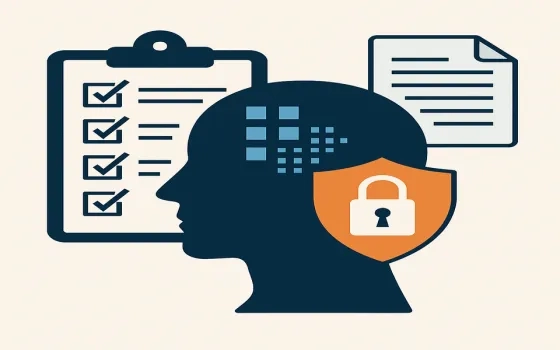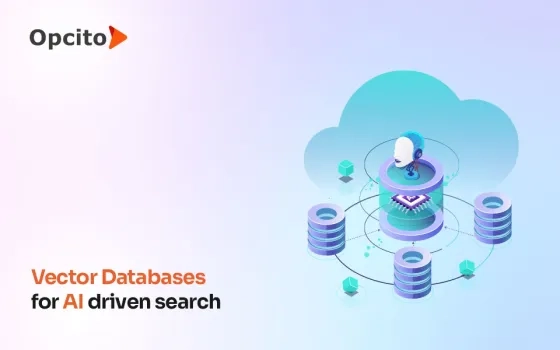The Internet has paved the way for a new age of information. And there is no denying that data has become integral to how companies operate, make decisions, and create strategies. The foundation of modern businesses is built on heaps of data. And as the reliance on data increases, businesses must find ways to store, access, analyze and use it efficiently. This is where data democratization comes in – making data accessible to everyone within the organization regardless of their role or technical proficiency.
What is Data Democratization?
Data democratization is the process of making data accessible to all stakeholders within a given organization so that everyone can access, understand, and use it. Data democratization gives both decision-makers and frontline employees real-time insights into what’s happening within their business. This leads to improved productivity, better customer service, and a better overall customer experience.
Why Is Data Democratization Important?
If done right, data democratization can revolutionize how businesses operate. Making data accessible to everyone within an organization can spark innovation, collaboration, and creativity. It also encourages employees at all levels to be more proactive in making decisions while mitigating the risk of poor decision-making due to limited access to data and insights.
Data democratization leads to a cultural shift where no gatekeepers of critical information exist. This helps reduce the time required to make decisions, improve customer service and satisfaction, and increase the efficiency of business operations.
In a world where agile teams are becoming more commonplace, data democratization helps create a culture of collaboration and agility. This makes it critical for organizations to understand in-depth how data democratization can help them better serve their customers, make smarter decisions, and drive growth.
Benefits of Data Democratization (Data Democratization Impact)
Data democratization brings many benefits to businesses – both large and small. By making data available to a broader audience, companies can realize a host of benefits.
1. Making Informed Decisions:
By making data accessible to everyone, companies can make better decisions faster. Almost all employees have access to key performance indicators that allow them to make informed choices in day-to-day operations without relying on siloed departments traditionally tasked with collecting and analyzing data.
2. Improved Productivity:
This improved access to data allows organizations to innovate faster and become more agile, enabling them to respond quickly to changes in the market or customer demands. This increased agility helps teams stay ahead of their competition and improves their overall productivity.
3. Quicker Strategizing:
Since all teams have access to critical data, it helps strategize quickly and efficiently. This allows businesses to quickly identify new opportunities, respond to changing market conditions, and innovate at a moment’s notice.
4. Enhanced Customer Experience:
Making real-time insights related to customer data available to all organizational stakeholders allows teams to provide better customer service, leading to improved customer satisfaction.
5. Time-savings on Manual Processes and Operations:
By making data more accessible, teams can reduce their time on manual processes and operations. This helps employees focus more on high-value work and develop better automation and optimization strategies.
6. Uncovering Hidden Insights:
By making data available to everyone in an organization, teams can make sense of holistic datasets and uncover insights that would have been difficult or impossible to discover before. This enables them to develop new products and services, optimize existing ones, and quickly uncover hidden trends.
7. Greater Trust in Decisions:
By democratizing data, organizations can create an environment of trust and collaboration. All stakeholders have access to the same data, allowing them to make decisions together and feel secure in their decisions.
8. Improve Data Literacy:
Data democratization also leads to improved data literacy of employees. As a result, they can add new skill sets to their repertoire, allowing them to remain valuable to the organization despite the ever-changing business landscape.
Implementing Data Democratization as a Culture
Data democratization is an essential step in any organization’s digital transformation endeavours. It helps create a culture of trust, agility and collaboration that can unlock new opportunities for businesses.
However, data democratization can only be successful if the entire organization embraces it. This means that everyone, from top decision-makers to day-to-day executives, must understand the value of data, the resulting capabilities, and their relevance to their job roles.
Organizations should create a culture where data is seen as integral to all operations and decision-making processes. This involves:
- Making data accessible to all stakeholders
- Providing them with relevant training and resources
- Establishing clear guidelines for data use
- Encouraging collaborative decision-making
- Creating a culture of experimentation and data-driven innovation
These steps will help develop a data-driven culture that empowers all stakeholders and encourages them to maximize the potential of available data.
How Data Democratization Impacts Different Organizational Roles and Departments
Data democratization can lead to numerous opportunities for different organizational roles and departments. Here are some of the most common impacts:
1. CXOs:
Data democratization enables CXOs to make more informed decisions supported by data. They can have access to real-time insights that can be used to help guide strategic decisions and drive their organization’s vision. In addition, they can access a holistic business view and use predictive analytics to anticipate future changes.
2. Sales:
Sales reps can have access to customer insights that can help them close deals faster. It also helps identify new opportunities and target the right customers. They can also better understand the value of every opportunity and gauge pipelines with more accuracy.
3. Marketing:
Marketers can access up-to-date customer behavior data, allowing them to quickly identify trends and adjust their strategies to optimize their campaigns and maximize ROI. By creating A/B tests that cater to the differentiated preferences of the segmented target audiences, marketers can ensure that their campaigns are always effective.
4. Product Development:
Product developers and managers can gain insights into customer preferences and needs, allowing them to develop better products that cater to specific customer needs. This also helps them identify new opportunities, develop products that are more in tune with the market’s demands, and introduce features that the data is pointing towards.
5. Operations:
Data democratization can help teams optimize operations and reduce time spent on manual processes. Teams can automate processes and develop smart solutions that help reduce redundancies. They can also create more accurate forecasting to anticipate changes in demand, inventory levels and other factors.
6. IT:
Data democratization can help IT teams identify potential opportunities, reduce bottlenecks and develop better solutions to ensure that the organization meets its business objectives. They can also better manage and secure data across different platforms and ensure compliance with relevant regulations.
7. Customer Support:
Data democratization can help customer support teams better understand customer needs and create more personalized experiences. This enables them to provide faster, more accurate support and improve customer satisfaction. By accessing the big picture of customer behaviors and past purchases, they can also help upsell and cross-sell related products more accurately.
Data democratization can positively impact nearly all aspects of an organization. By creating a data-driven culture and making data more accessible to all stakeholders, organizations can unlock their full potential and ensure a positive impact on their bottom line.
3 Pillars Of Effective Data Democratization Strategy
For data democratization to be successful, organizations should focus on three key pillars:
- Technology: This involves establishing and maintaining an effective data architecture that allows for secure access to data. It also requires implementing processes and systems that enable teams to access, analyze, and visualize the data easily. Technologies to focus on here include:
- Data integration and migration tools for consolidating data from multiple sources
- Data governance platforms for managing access and security
- Analytics and reporting tools for discovering insights
- Process optimization tools to automate operations
- Governance: Organizations should define and implement governance structures that ensure data accuracy and security. They should also establish a set of guidelines for data usage by answering questions such as:
- Who has access to which data?
- How is the data collected and used?
- What are the data privacy regulations?
- Which data sources are reliable?
- Where is the data stored?
- Training: Organizations should invest in training and development opportunities that help teams understand the importance of data, develop their data literacy skills, and make sense of new datasets. This could involve introducing data literacy programs focusing on data analysis, visualization tools, and AI algorithms. In addition, to ensure that all training sessions are effective, organizations must introduce provisions to:
- Assess their teams’ proficiency levels
- Build customised training plans
- Track progress against the set benchmarks
Ensure that the team stays updated with new tools and methodologies
By focusing on these three pillars, organizations can foster a data-driven culture and ensure that data democratization brings them the desired results.
Conclusion
Data democratization is a powerful tool in any organization’s digital transformation journey. By creating an effective data democratization strategy, organizations can ensure that all stakeholders can access data and make informed decisions. This will promote a culture of trust, enable agile decision-making, and boost the organization’s competitive advantage. In addition, successful data democratisation is key to implementing strong technology, governance, and training frameworks. These provide the necessary foundation to ensure that all teams can fully utilize data securely and reliably. Ultimately, data democratization can empower organizations to move forward with confidence and agility.




















